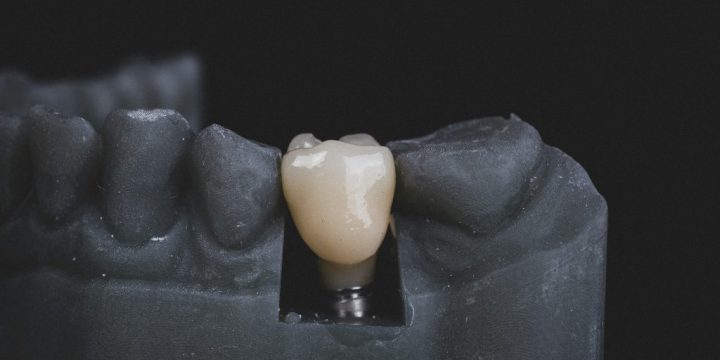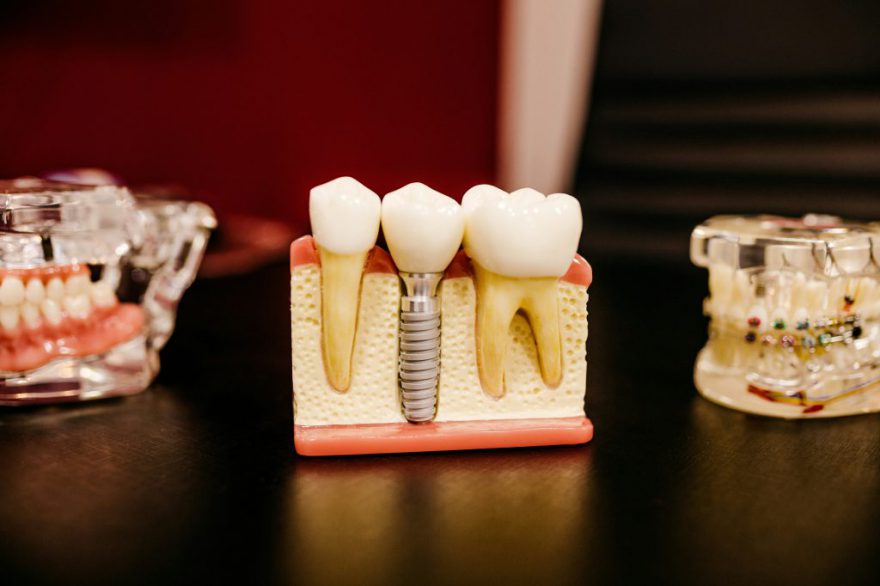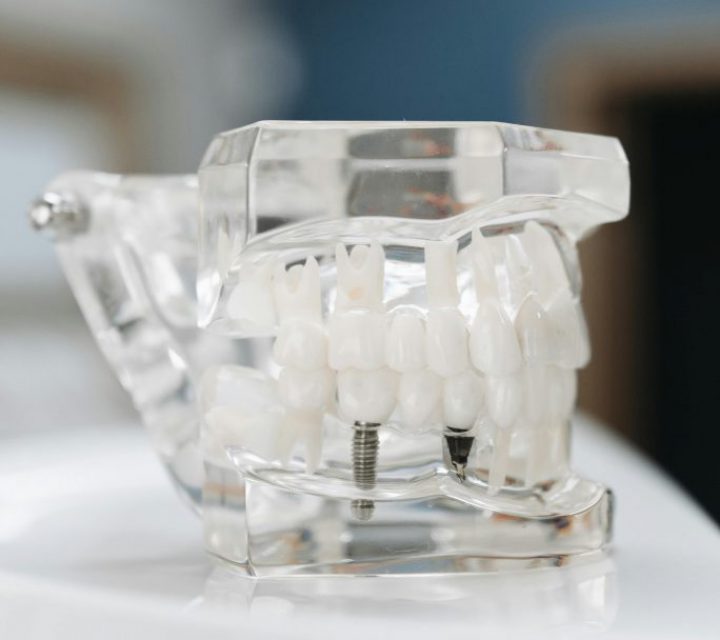blog layout 2
Dental Implants Simplified : What we do at Ctomatodont ?
How we help Our patient choose the right dental implant at our clinic in Malkajgiri,Hyderabad !

What Are Dental Implants?
Dental implants are artificial tooth roots that are surgically implanted into the jawbone to support replacement teeth or bridges. Made of biocompatible materials such as titanium, implants fuse with the jawbone, providing a stable foundation for artificial teeth.
Dental implants have become a popular solution for individuals seeking to replace missing teeth and restore their smile. At Ctomatodont Dental Care, malkajgiri we understand the importance of providing comprehensive information to patients considering this treatment option. In this guide, we will walk you through everything you need to know about dental implants, from the types available to the procedure itself and what to expect during recovery and aftercare.


Types of Dental Implants
Endosteal Implants
Endosteal implants are the most common type of dental implants. These are surgically placed directly into the jawbone, providing a sturdy base for one or more artificial teeth.
Subperiosteal Implants
Subperiosteal implants are placed on top of the jawbone but underneath the gum tissue. They are used when the patient lacks sufficient bone height for endosteal implants.
Zygomatic Implants
Zygomatic implants are used in cases where the patient has inadequate bone volume in the upper jaw. These implants are anchored in the cheekbone (zygomatic bone) instead of the jawbone.
Preparation and Procedure
Initial Consultation
The first step in the dental implant process is a comprehensive consultation with our dental team. During this visit, we will assess your oral health, discuss your treatment goals, and determine if you are a suitable candidate for dental implants.
Treatment Planning
Once you decide to proceed with dental implants, we will create a customized treatment plan tailored to your specific needs. This plan will outline the number of implants required, the type of restoration, and the timeline for the procedure.
Surgical Procedure
The implant surgery is typically performed under local anesthesia to ensure your comfort. Our skilled oral surgeon will precisely place the implants into the jawbone, following the detailed treatment plan. After the implants are placed, a healing period is necessary for osseointegration to occur.


Recovery and Aftercare
Healing Process
During the healing period, the implants will fuse with the surrounding bone tissue in a process called osseointegration. This typically takes several months, during which temporary restorations may be provided.
Post-Procedure Care
After the implants have fully integrated with the jawbone, permanent prosthetic teeth or bridges will be attached. Proper oral hygiene and regular dental visits are essential to maintain the health and longevity of your dental implants.
Benefits of Dental Implants
Improved Appearance
Dental implants look and feel like natural teeth, restoring your smile and facial aesthetics. They also prevent bone loss and preserve the integrity of your facial structure.
Enhanced Oral Health
Unlike traditional dentures, dental implants do not require support from adjacent teeth, preserving their integrity. This helps maintain overall oral health and reduces the risk of decay and gum disease.
Durability and Longevity
With proper care, dental implants can last a lifetime, making them a cost-effective and long-term solution for tooth replacement.


Potential Risks and Complications
Infection
As with any surgical procedure, there is a risk of infection following dental implant surgery. However, this risk is minimized with proper oral hygiene and post-operative care.
Nerve Damage
In rare cases, dental implant surgery may cause nerve damage, resulting in numbness or tingling in the mouth or surrounding areas. Our experienced dental team takes precautions to minimize this risk.
Implant Failure
While rare, implant failure can occur due to factors such as poor bone quality, inadequate osseointegration, or implant overload. Our team closely monitors the healing process to ensure the success of your dental implants.
Cost Considerations
Factors Affecting Cost
The cost of dental implants can vary depending on factors such as the number of implants required, the type of restoration, and any additional procedures such as bone grafting.
Insurance Coverage
Some dental insurance plans may cover a portion of the cost of dental implants, particularly if they are deemed medically necessary. Our team can help you navigate insurance coverage and explore financing options to make treatment more affordable.

Dental Implant Brands We Use

Frequently Asked Questions
How long do dental implants last?
With proper care, dental implants can last a lifetime.
Is the implant procedure painful?
Most patients report minimal discomfort during the implant procedure, which is performed under local anesthesia.
Can anyone get dental implants?
While most individuals are suitable candidates for dental implants, a thorough evaluation is necessary to assess your eligibility.
What are the alternatives to dental implants?
Alternatives to dental implants include traditional dentures and dental bridges, although these may not offer the same level of stability and longevity.
How do I maintain dental implants?
Maintaining dental implants is similar to caring for natural teeth, including regular brushing, flossing, and routine dental check-ups.
In conclusion, dental implants offer a reliable and long-lasting solution for individuals seeking to restore their smile and oral function. At Ctomatodont Dental Care, we are committed to providing personalized care and guidance throughout your implant journey. If you have any further questions or would like to schedule a consultation, please contact our office.
REFERAL LINKS
- American Dental Association – https://www.ada.org/
- Mayo Clinic – Dental Implants – https://www.mayoclinic.org/tests-procedures/dental-implant-surgery/about/pac-20384622
- WebMD – Dental Implants Guide – https://www.webmd.com/oral-health/guide/dental-implants
- Colgate – Dental Implants: Procedure, Problems, and Recovery – https://www.colgate.com/en-us/oral-health/cosmetic-dentistry/implants
- Academy of Osseointegration – https://www.osseo.org/
- National Institutes of Health – Dental Implants: Overview – https://www.nidcr.nih.gov/health-info/dental-implants
- Dental Tribune International – News and Articles on Dental Implants – https://www.dental-tribune.com/
- Oral Health Foundation – Dental Implants Information – https://www.dentalhealth.org/dental-implants
- Cleveland Clinic – Dental Implant Surgery – https://my.clevelandclinic.org/health/treatments/10953-dental-implant-surgery
- University of Maryland Medical Center – Dental Implants: Overview – https://www.umms.org/ummc/health-services/oral-health/services/dental-implants
- Healthline – Dental Implants: What to Expect – https://www.healthline.com/health/dental-implants
- The New York Times – Guide to Dental Implants – https://www.nytimes.com/guides/well/how-to-care-for-your-teeth/dental-implants
- MedlinePlus – Dental Implants Information – https://medlineplus.gov/dentalimplants.html
- World Dental Federation – Dental Implants Resources – https://www.fdiworlddental.org/resources/policy-statements-and-recommendations/implant-dentistry
- Mayo Clinic – Tooth Implants: How Much Do They Cost? – https://www.mayoclinic.org/healthy-lifestyle/adult-health/expert-answers/dental-implant-cost/faq-20484856
- American Academy of Periodontology – Dental Implants Fact Sheet – https://www.perio.org/consumer/dental-implants
- NHS – Dental Implants Guide – https://www.nhs.uk/live-well/healthy-body/dental-implants/
- Dentistry Today – Advances in Dental Implant Technology – https://www.dentistrytoday.com/news/industrynews/item/6836-advances-in-dental-implant-technology
- European Association for Osseointegration – https://www.eao.org/
- Dental Economics – The Economics of Dental Implants – https://www.dentaleconomics.com/practice/article/16387768/the-economics-of-dental-implants
- Journal of Clinical Periodontology – Dental Implants Research – https://onlinelibrary.wiley.com/journal/1600051x
- University of Michigan School of Dentistry – Dental Implants Overview – https://dent.umich.edu/about-school/newsroom/press-releases/2022/08/16/dental-implants-overview
- Dental Health Society – Dental Implants: All You Need to Know – https://www.dentalhealthsociety.com/dental-implants/
- Dental Research Journal – Advances in Dental Implantology – https://www.drjjournal.net/
- The Journal of Implant and Advanced Clinical Dentistry – https://www.jiacd.com/
- Dental Tribune US Edition – Latest News on Dental Implants – https://us.dental-tribune.com/
- University of California, San Francisco – Dental Implant Research Center – https://www.ucsf.edu/dental/clinical-excellence/dental-implant-research-center
- International Congress of Oral Implantologists – https://www.icoi.org/
- Dental News – Global Dental Implant Updates – https://www.dentalnews.com/
- National Library of Medicine – Dental Implants Research Articles – https://pubmed.ncbi.nlm.nih.gov/?term=dental+implants